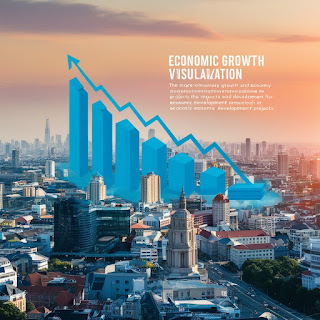The recent trend of economic development heads commanding
salaries between $550,000 and $700,000 has become a topic of significant
discussion. This dramatic rise in compensation reflects broader changes in the
financial landscape and raises essential questions about the justification for
such high pay scales.
The New Pay Norm for Economic Development Heads
The compensation packages for economic development heads,
ranging from $550,000 to $700,000, represent a notable shift in executive pay
standards. This salary increase has garnered attention for its magnitude and
what it signifies about these high-level roles' evolving demands and
expectations.
Factors Driving the High Salaries
Several factors contribute to the new norm of high salaries
for economic development heads:
- Complexity of Economic Challenges: Economic development heads are tasked with navigating intricate economic landscapes, implementing policies that stimulate growth, and addressing diverse challenges. The high pay reflects the complexity and responsibility associated with these roles.
- Experience and Expertise: These positions require substantial experience and a deep understanding of economic strategies, urban planning, and public-private partnerships. The significant salaries reflect the expertise and high-level experience required to excel in these roles.
- Competitive Market: As the competition for top talent intensifies, organizations are willing to offer higher salaries to attract and retain skilled professionals capable of driving substantial economic growth and development.
Impact on Economic Development Strategies
The high compensation for economic development heads
directly impacts their strategies and initiatives. With increased financial
resources allocated to top executives, there is a potential for more ambitious
and innovative economic development projects.
However, this shift also raises questions about the
allocation of funds and whether the focus remains on achieving meaningful
economic improvements. Balancing executive compensation with the overall
effectiveness of economic development initiatives is crucial.
Evaluating the Justification for High Pay
To
assess whether the high salaries are justified, it is essential to consider the
following:
Performance and Outcomes
The effectiveness of economic development heads should be
measured by the tangible outcomes of their work. Key performance indicators,
such as job creation, economic growth, and community impact, can provide
insights into whether the high compensation is warranted.
Public Perception
Public perception plays a significant role in the debate
over executive salaries. Transparency and communication about the rationale
behind high pay can help address concerns and build stakeholder trust.
Frequently Asked
Questions
Why are economic development heads paid so much?
Economic development heads are compensated at high levels
due to the complexity of their roles, which require extensive experience and
expertise. They are responsible for navigating intricate economic issues and
implementing strategies that have far-reaching impacts.
How does high pay affect economic development strategies?
High pay can attract top talent and enable more ambitious
projects. However, ensuring that the focus remains on achieving meaningful
economic outcomes rather than solely on executive compensation is essential.
Are high salaries justified by performance?
Salaries should be evaluated in conjunction with the
performance and outcomes achieved by economic development heads. Measuring
success through key performance indicators can provide a clearer picture of
whether the compensation is justified.
How can organizations address concerns about high
executive pay?
Organizations can address concerns by being transparent
about the rationale for high salaries and demonstrating the value and impact of
their economic development strategies. Effective communication and a focus on
outcomes can help build trust with the public and stakeholders.
By understanding the factors behind the rising salaries
of economic development heads, stakeholders can better appreciate the
complexities of these roles and the broader implications for economic growth
and development.
4o mini








0 Comments